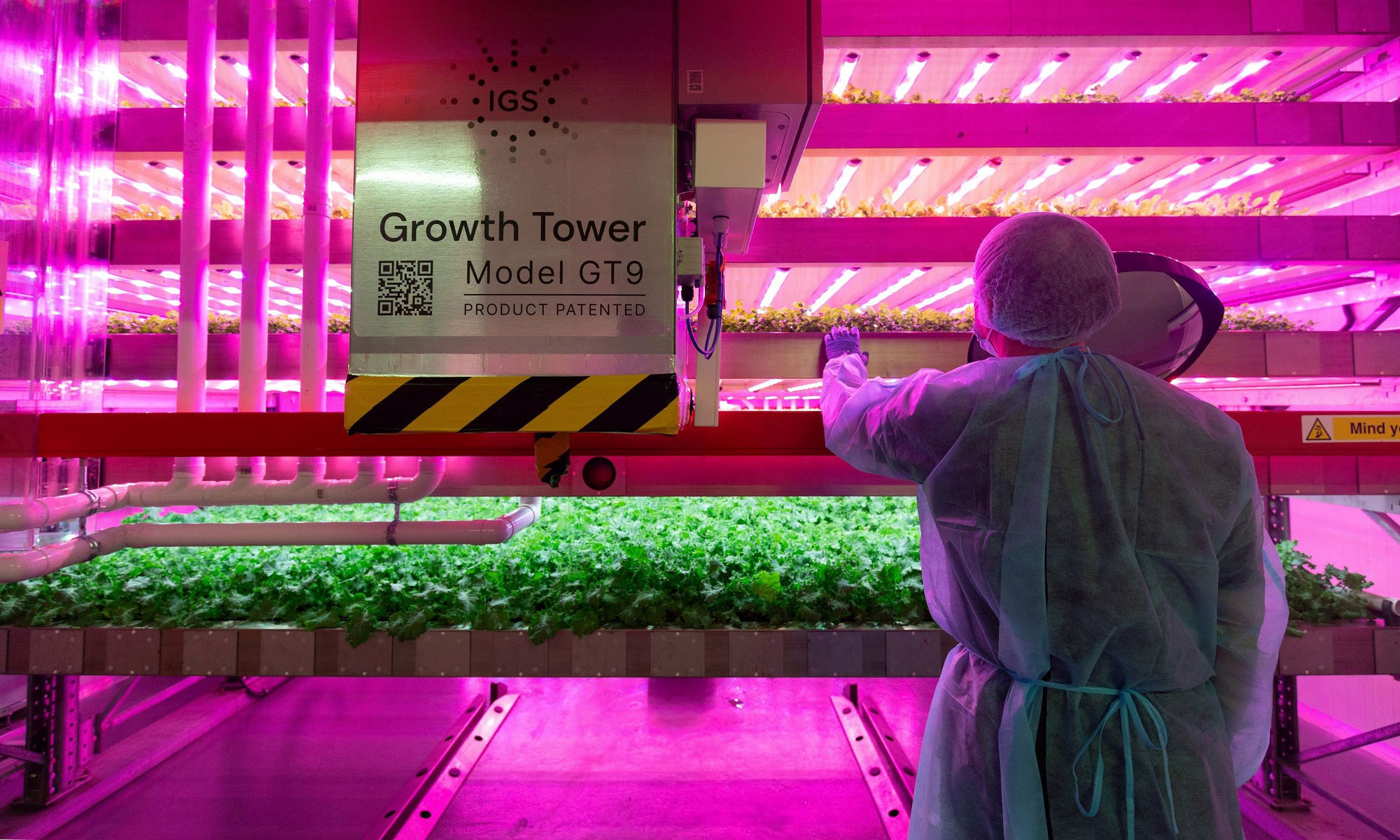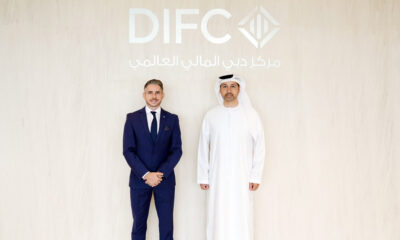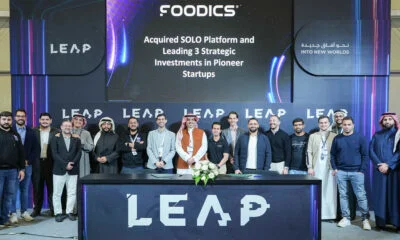News
Dubai’s Food Tech Valley & ReFarm Plan Hi-Tech Gigafarm
The “vertical farm” venture is expected to be operational by 2026 and will be capable of replacing 1% of UAE fresh produce imports.

Food Tech Valley, a Dubai-based technology center designed to address food security, has entered a partnership with the ReFarm group to build a gigafarm capable of growing over three million kilograms of produce annually.
The project, which starts in mid-2024, aims to help decarbonize UAE food production, replacing 1% of the country’s fresh produce imports. Both parties signed an agreement at this year’s COP28, which should see the 83,612-square-meter farm becoming fully operational by 2026.
As well as producing vast quantities of food, the high-tech farm will be capable of recycling over 50,000 tons of food waste each year while growing two billion plants.
“Rethinking our food production systems is a clear priority, and the decision of ReFarm to launch a facility in Dubai’s Food Tech Valley is a significant step forward for the development of a technologically advanced, low-carbon agricultural sector,” said Dr Thani Al Zeyoudi, UAE Minister of State for Foreign Trade.
The gigafarm will be split into four zones: Agritech and engineering, food innovation, research and development, and smart food logistics. In addition, the site will become a closed-loop circular waste-to-value system, maximizing resources and preventing waste from entering landfills by creating organic compost.
Also Read: Abu Dhabi’s Hub71 To Help Climate Technology Startups
“This is one of many transformative projects which is set to be part of Food Tech Valley, which will have a significant impact on the UAE’s food security, maximizing the use of precious resources and decarbonizing the food supply chain,” explained Hesham Al Qassim, chief executive of Wasl Asset Management Group, which is developing the project alongside the Ministry of Food and Water Security.
Technologies used at the gigafarm are expected to recover 90% of the ammonia sulfate from wastewater, and no mains or groundwater connection will be required for the vertical farm to produce fresh produce. Developers claim the site will be 98% more efficient than traditional field-based farming.
News
Alienware Just Announced Six New Gaming Monitors
The new models include three QD-OLED and three budget-friendly QHD options, expanding the company’s lineup for all gamers.

Alienware has just updated its gaming monitor lineup with six new additions, including the highly anticipated Alienware 27 4K QD-OLED Monitor. The latest wave of releases is set to reach more gamers than ever, offering high-end QD-OLED displays alongside more budget-friendly options.
The latest displays clearly show that the company is doubling down on QD-OLED with three new models sporting the technology. A redesigned Alienware 34 Ultra-Wide QD-OLED Monitor is also making a return, further refining what is already a fan-favorite display.
A Unified Design: The AW30 Aesthetic
All six monitors feature Alienware’s new AW30 design language, first introduced at CES. The AW30 aesthetic brings a futuristic, minimalist look that unites the entire lineup under a cohesive visual identity.
Pushing QD-OLED Even Further
The refreshed Alienware 34 Ultra-Wide QD-OLED Monitor (AW3425DW) builds on its predecessor’s success with a 240Hz refresh rate (up from 175Hz) and HDMI 2.1 FRL support. It also gains G-SYNC Compatible certification alongside AMD FreeSync Premium Pro and VESA AdaptiveSync, ensuring ultra-smooth performance. With a WQHD (3440×1440) resolution and an 1800R curve, this display enhances immersion for both gaming and cinematic experiences.
For those who crave speed, the Alienware 27 280Hz QD-OLED Monitor (AW2725D) pairs a high refresh rate with QHD resolution, balancing sharp visuals with ultra-smooth gameplay. Meanwhile, the Alienware 27 4K QD-OLED Monitor (AW2725Q) delivers stunning clarity with an industry-leading pixel density of 166 PPI, making it the sharpest OLED or QD-OLED monitor available.
Also Read: Infinite Reality Acquires Napster In $207 Million Deal
Worried about OLED burn-in? Alienware’s entire QD-OLED lineup comes with a three-year limited warranty covering burn-in concerns, offering peace of mind for gamers investing in these high-end displays.
Bringing QHD To A Wider Audience
Alongside QD-OLED, Alienware is also releasing three new QHD gaming monitors aimed at more price-conscious gamers. The Alienware 34 Gaming Monitor (AW3425DWM), Alienware 32 Gaming Monitor (AW3225DM), and Alienware 27 Gaming Monitor (AW2725DM) provide a range of sizes and formats to suit different preferences:
- The Alienware 34 Gaming Monitor (AW3425DWM): An ultrawide (WQHD) option for a panoramic, immersive experience.
- The Alienware 32 Gaming Monitor (AW3225DM): A standard 16:9 panel for a traditional but expansive desktop setup.
- The Alienware 27 Gaming Monitor (AW2725DM): A 27” display offering the same performance in a more compact form factor.
All three gaming monitors feature a fast 180 Hz refresh rate, a 1ms gray-to-gray response time, and support for NVIDIA G-SYNC, AMD FreeSync, and VESA AdaptiveSync to eliminate screen tearing. Additionally, with 95% DCI-P3 color coverage and VESA DisplayHDR400 certification, these displays deliver vibrant colors and high dynamic range for lifelike visuals.



























